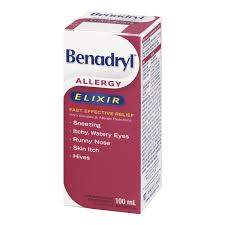No, not marijuana. The researchers at the University of Washington were looking at drugs like Benadryl, anti-depressants like Sinequan, anti-histamines like Chlor-Trimeton, and antimuscarinics for bladder control like Ditropan.  A university news release reports that the scientists, who tracked nearly 3,500 Group Health seniors participating in a long-running joint Group Health-UW study funded by the National Institute on Aging, found that such drugs, with anticholinergic effects, significantly increased risk for developing dementia, including Alzheimer’s disease, in people who took them for longer periods of time. What are anticholinergic effects? Good question. Shelly Gray, a University of Washington professor of pharmacy who led the research, says anticholinergic effects happen because some medications block the neurotransmitter called acetylcholine in the brain and body. That blockage can cause many side effects, including drowsiness, constipation, retaining urine, and dry mouth and eyes. The study estimated that people taking at least 10 mg/day of doxepin, 4 mg/day of chlorpheniramine, or 5 mg/day of oxybutynin for more than three years would be at greater risk for developing dementia. Gray said substitutes are available for the first two: a selective serotonin re-uptake inhibitor (SSRI) like citalopram (Celexa) or fluoxitene (Prozac) for depression and a second-generation antihistamine like loratadine (Claritin) for allergies. It’s harder to find alternative medications for urinary incontinence, but some behavioral changes can reduce this problem.
reports that the scientists, who tracked nearly 3,500 Group Health seniors participating in a long-running joint Group Health-UW study funded by the National Institute on Aging, found that such drugs, with anticholinergic effects, significantly increased risk for developing dementia, including Alzheimer’s disease, in people who took them for longer periods of time. What are anticholinergic effects? Good question. Shelly Gray, a University of Washington professor of pharmacy who led the research, says anticholinergic effects happen because some medications block the neurotransmitter called acetylcholine in the brain and body. That blockage can cause many side effects, including drowsiness, constipation, retaining urine, and dry mouth and eyes. The study estimated that people taking at least 10 mg/day of doxepin, 4 mg/day of chlorpheniramine, or 5 mg/day of oxybutynin for more than three years would be at greater risk for developing dementia. Gray said substitutes are available for the first two: a selective serotonin re-uptake inhibitor (SSRI) like citalopram (Celexa) or fluoxitene (Prozac) for depression and a second-generation antihistamine like loratadine (Claritin) for allergies. It’s harder to find alternative medications for urinary incontinence, but some behavioral changes can reduce this problem.

I hope more research will be done on this topic.
So, is Benadryl an anticholinergic? I know it can cause drowsiness. It wasn’t clear in the article.
yes, it is